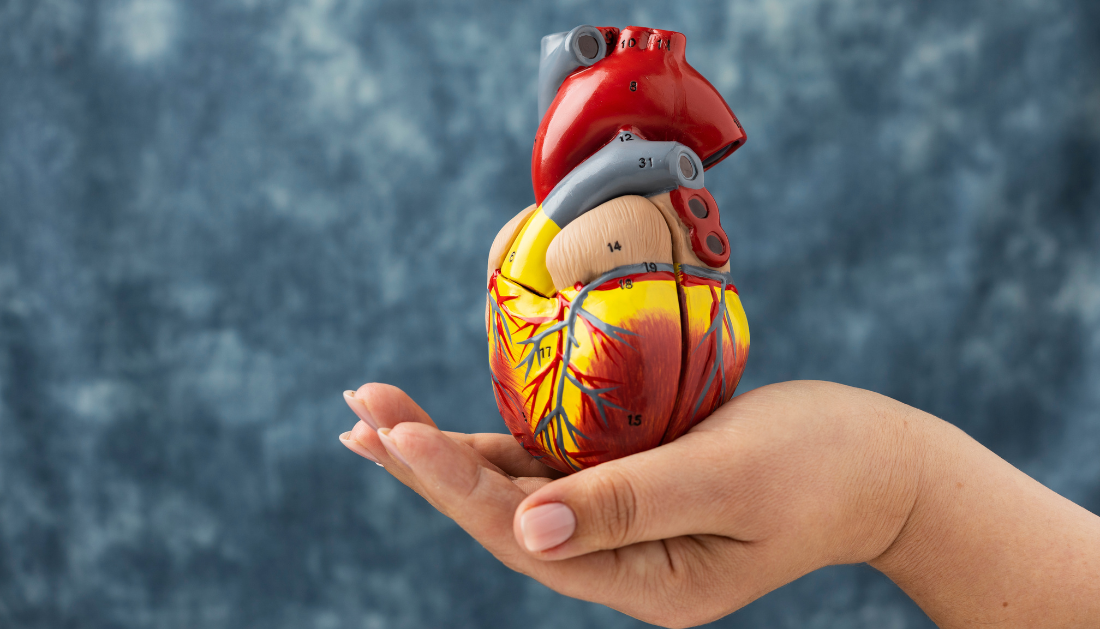

According to the Centers for Disease Control and Prevention (CDC), about two out of every five persons in the United States have high cholesterol. Untreated, high cholesterol can lead to heart disease and stroke, which are two of the leading causes of mortality in the United States. According to the World Health Organization, cardiovascular illnesses claim almost 18 million lives each year.
A novel vaccination created by researchers at The University of novel Mexico School of Medicine could change the game by giving a low-cost way to lower “bad” LDL cholesterol, which forms deadly plaques that can clog blood vessels.
A team led by Bryce Chackerian, PhD, Regents’ Professor in the Department of Molecular Genetics & Microbiology, stated in a recent study published in NPJ Vaccines that the vaccines reduced LDL cholesterol almost as efficiently as an expensive class of medications known as PCSK9 inhibitors.
“We are interested in trying to develop another approach that would be less expensive and more broadly applicable, not just in the United States, but also in places that don’t have the resources to afford these very, very expensive therapies,” he said.
One would expect that medicines for high cholesterol levels would be more accessible and affordable for a problem with such a broad worldwide impact. Abinash Achrekar, MD, MPH, discovered this personally.
Achrekar, a cardiologist, is the vice chair and professor of internal medicine at the University of New Mexico. He not only has treated innumerable people with high cholesterol, but he is also a patient.
“I’m a cardiologist, and I have high cholesterol,” he told me. “I was actually diagnosed when I was a young man about the age of 16.”
Since then, Achrekar has tried a variety of medications, including statins, which are used by around 200 million people globally, and the PCSK9 monoclonal injection. This is a newer medication that targets the PCSK9 protein, a molecule produced in the liver that circulates in the bloodstream and negatively influences LDL cholesterol metabolism.
Essentially, the more PCSK9 your body produces, the greater your LDL cholesterol. The twice-monthly injections to block that protein, according to Achrekar, cut his bad cholesterol by roughly 60%, but they are pricey and require prior authorization from a primary care doctor or cardiologist.
“They do take some time processing with the insurance companies, but they’re life-saving,” he went on to say. “These medicines have been shown not only to lower cholesterol, but to reduce the chances of heart attack, stroke and dying.”
Chackerian and his colleagues wanted all patients who were at danger to have access to treatment. Using vaccine platform technology created at UNM, Chackerian collaborated with researchers from around the United States to produce a novel vaccination that specifically targets PCSK9.
“The vaccine is based on a non-infectious virus particle,” he went on to say. “It is just the shell of a virus, and it turns out that we can use that shell of a virus to develop vaccines against all sorts of different things.”
Chackerian stated that he adhered microscopic bits of the PCSK9 protein to the surface of these viral particles in this example.
“So, your immune system makes a really strong antibody response against this protein that’s involved in controlling cholesterol levels,” he went on to say. “In the animals that we vaccinated, we see strong reductions in cholesterol levels – up to 30% – and that is going to be correlated with reduced risk of heart disease.”
The vaccine has been tested on mice and monkeys with encouraging results during the last ten years. Chackerian stated that the next step is to secure financing to begin vaccine production and human clinical trials. That process can take years and cost millions of dollars, but it is worthwhile to create a vaccine that is pure, safe, and economical.
“Given the fact that so many people have high cholesterol levels, it has been estimated that if everybody went on one of these PCSK9 inhibitor therapies, it would bankrupt the health care system,” Chackerian said in an interview.
He predicts that his vaccine could cost less than $100 per dosage because it is generated from a simple and affordable microbe.
“We’re thinking tens of dollars per dose,” he added, adding that each dose would be effective for nearly a year. “This is a vaccine that we believe has the potential to have a global impact.” So, not just in the United States, but all across the world where heart disease is a major issue.”
Chackerian stated that his team is still working hard to make an effect.
“We hope to have a vaccine in people in the next 10 years,” he added.
more recommended stories
 Tuberculosis Breakthrough with Experimental Antibiotics
Tuberculosis Breakthrough with Experimental AntibioticsKey Takeaways Experimental antibiotics disrupt a.
 National Healthy Longevity Trial Receives Federal Support
National Healthy Longevity Trial Receives Federal SupportKey Summary Up to $38 million.
 Red Blood Cells Improve Glucose Tolerance Under Hypoxia
Red Blood Cells Improve Glucose Tolerance Under HypoxiaKey Takeaways for Clinicians Chronic hypoxia.
 Nanoplastics in Brain Tissue and Neurological Risk
Nanoplastics in Brain Tissue and Neurological RiskKey Takeaways for HCPs Nanoplastics are.
 AI Predicts Chronic GVHD Risk After Stem Cell Transplant
AI Predicts Chronic GVHD Risk After Stem Cell TransplantKey Takeaways A new AI-driven tool,.
 Red Meat Consumption Linked to Higher Diabetes Odds
Red Meat Consumption Linked to Higher Diabetes OddsKey Takeaways Higher intake of total,.
 Pediatric Crohn’s Disease Microbial Signature Identified
Pediatric Crohn’s Disease Microbial Signature IdentifiedKey Points at a Glance NYU.
 Nanovaccine Design Boosts Immune Attack on HPV Tumors
Nanovaccine Design Boosts Immune Attack on HPV TumorsKey Highlights Reconfiguring peptide orientation significantly.
 High-Fat Diets Cause Damage to Metabolic Health
High-Fat Diets Cause Damage to Metabolic HealthKey Points Takeaways High-fat and ketogenic.
 Acute Ischemic Stroke: New Evidence for Neuroprotection
Acute Ischemic Stroke: New Evidence for NeuroprotectionKey Highlights A Phase III clinical.

Leave a Comment